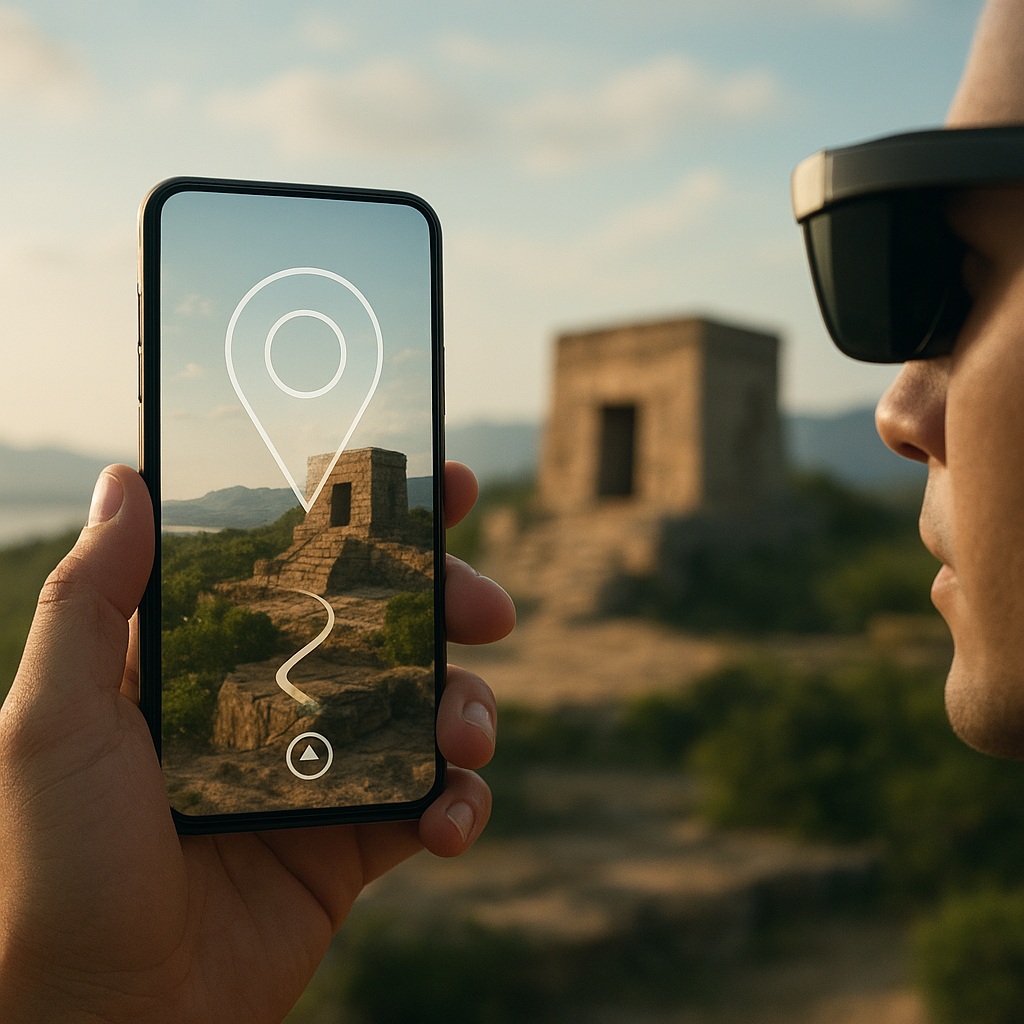How AR is Enhancing Travel Experiences
Summary As the travel industry embraces innovation, Augmented Reality (AR) emerges as a transformative force, enhancing visitor engagement and sustainability. Enhanced travel experiences are being shaped by innovative technologies, allowin
Summary
As the travel industry embraces innovation, Augmented Reality (AR) emerges as a transformative force, enhancing visitor engagement and sustainability. Enhanced travel experiences are being shaped by innovative technologies, allowing tourists to connect with destinations like never before.

The Rise of Augmented Reality in Travel
Over the past few years, Augmented Reality has made significant inroads into the travel sector, offering immersive experiences that enrich the way travelers explore new destinations. Unlike traditional forms of tourism, AR blends digital elements with the physical world, enabling users to engage more deeply with their surroundings.
An Overview of AR Technology
AR technology superimposes computer-generated images and information onto the real world, viewed through a smartphone, tablet, or specialized glasses. It leverages the widespread availability of mobile devices to enhance everyday experiences, including travel.
Benefits of AR in Travel
The integration of AR into travel offers numerous benefits, improving not only the user experience but also enhancing the industry's overall sustainability efforts. Key advantages include:
- Interactive Experiences: Travelers can access rich historical information, directional assistance, and interactive guides that illuminate local attractions.
- Personalization: AR applications can tailor experiences based on individual preferences, ensuring a more engaging journey.
- Educational Opportunities: Museums and historical sites often use AR to provide deeper insights into their exhibits.
- Environmental Consciousness: AR can promote sustainable tourism practices by educating travelers on conservation and local flora and fauna.
Case Studies of AR Innovation
Various companies and destinations worldwide are pioneering AR applications, reimagining how tourists interact with their surroundings.
China's AStation and Virtual Experiences
In China, AStation has revolutionized tourism through its Enterverse technology, which incorporates AR and virtual reality to enhance user experiences while emphasizing sustainability. Collaborations with major airlines and hotel chains, including China Eastern Airlines and Marriott Hotels, have allowed them to develop immersive virtual tours that attract environmentally conscious travelers.
5G Technology and Enhanced Connectivity
In the UAE, Sharjah International Airport has implemented 5G technology that significantly enhances travelers' experiences at the airport. Users benefit from seamless access to AR applications, which provide real-time information, navigation assistance, and virtual concierge services.
Augmented Reality in Tourism Marketing
Tourism boards and travel agencies are increasingly employing AR as a marketing tool, inviting potential visitors to experience destinations in a unique way.
Experiential Marketing
Through AR-enhanced advertising campaigns, destinations can showcase their attractions in captivating ways. For example:
- Virtual Previews: Potential tourists can scan QR codes or images in brochures to view 3D renderings of sites and activities.
- Social Media Engagement: Travel brands utilize AR filters and experiences on platforms like Instagram and Snapchat to reach younger audiences.
Challenges and Considerations
Despite the many advantages, there are challenges to the widespread adoption of AR in travel. Potential issues include:
- Technology Accessibility: Not all travelers have access to the necessary devices or data plans to fully experience AR enhancements.
- User Privacy: Collecting user data to personalize experiences raises concerns about privacy and security.
- Content Quality: Ongoing investment in high-quality AR content is required to maintain user engagement.
The Future of AR in Travel
Looking ahead, the role of AR in the travel industry is expected to grow significantly. Predictions indicate that the global market for flight simulation, which includes AR technology, is projected to reach over USD 7 billion in the coming years. This trend underscores the increasing importance of immersive technologies in shaping tourism experiences.
"Augmented reality has the potential to transform the travel experience, creating a richer interaction with destinations and encouraging sustainable choices among travelers." – Travel Innovator
Conclusion
As travelers seek out more enriching and personalized experiences, Augmented Reality stands at the forefront of innovation in the tourism industry. By marrying technology with exploration, AR has the power to not only enhance individual journeys but also contribute to the broader objectives of sustainable tourism. The future of travel is set to become increasingly interactive, educational, and environmentally conscious, all thanks to the remarkable capabilities of AR.